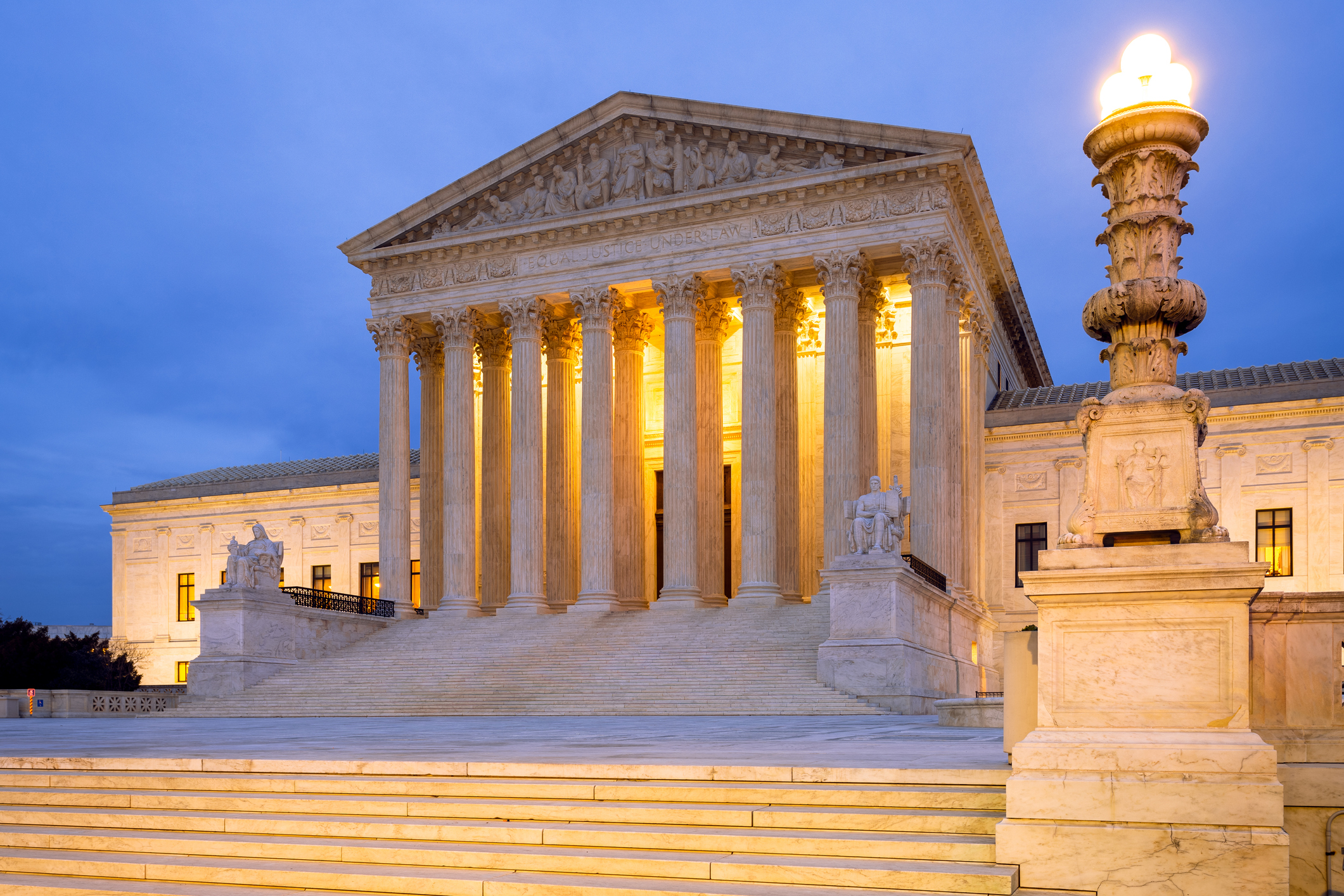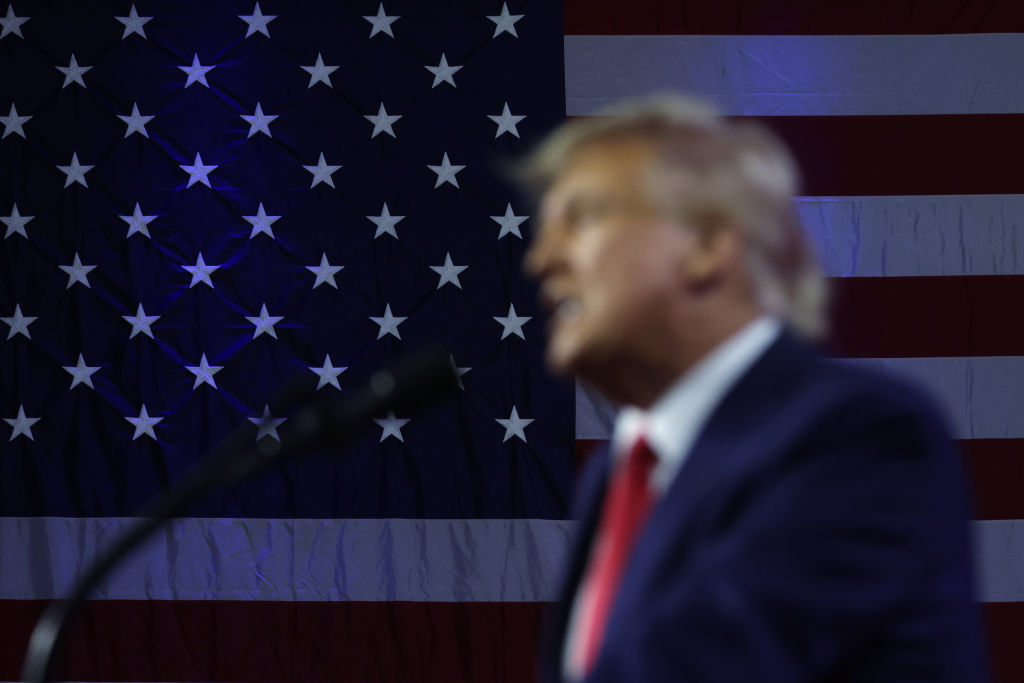The prognosis for free speech in America promises marked improvement.
From Political Correctness to Cancel Culture

Modern ideologues are fundamentally at odds with the nation as a political entity.
Critics who doubt that cancel culture exists would have us believe it is simply a matter of holding individuals accountable for their opinions, for their words and thoughts. But cancel culture does exist, and it employs clearly identifiable methods and patterns that rest on an ideological framework that ultimately undermines the political community.
I attended Harvard from 1993 to 1995, where I ran headlong into political correctness, the father of modern cancel culture. In The Canceling of the American Mind, Greg Lukianoff and Rikki Schlott point out that, unlike its progeny, political correctness never really got off the ground. It was behind the creation of campus speech codes that were designed to prevent offense, but which were often overturned in legal challenges.
Let’s fast forward to 2022, when cancel culture came to cancel me. I was appointed Chief of the Alberta Human Rights Commission on May 25, 2022 and was fired by the Alberta government on September 15. Between my appointment and my termination, a small but persistent and aggressive cabal of leftist activists did all they could to remove me from office.
Their attacks focused mainly on a 2009 book review I had written on Islam and imperialism. The book, written by renowned contemporary Middle East historian Efraim Karsh and published by the highly reputable Yale University Press, discussed a historical penchant in Islam for the imperial political form and its attendant militarism. The review was rather esoteric, drawing on my training in medieval Islam at Harvard. It focused primarily on modes of studying the Middle East, siding with non-orientalist presentations that recognize the agency of Muslims over those approaches that emphasize colonialism and tend to see Islam as a victim of Western domination. At the time of the review’s publication, it garnered no comments, and certainly no objections.
But in 2022, in the hands of the Alberta New Democratic Party, along with a small number of their leftist allies in academia, the blogosphere, and the National Council of Canadian Muslims (NCCM), I was accused of having written hate speech that was Islamophobic and racist. The charges were ludicrous and a complete misreading of the text, as other academics, including Karsh himself, have pointed out. But it spooked the conservative government that appointed me, and I was called on to make my obeisance to the NCCM.
While I did not apologize, I did meet with the NCCM and agreed to speak with members of the Muslim community. But all this was not to be. After a series of events, including receiving instructions not to meet with the Muslim community, the NCCM called for my resignation. The Alberta government capitulated, and I was fired.
Cancel Culture: Real and Imagined
With that summary in place, I’d like to turn to a definition of cancel culture from Jonathan Rauch of the Brookings Institution. What’s relevant here, and one of the reasons I find it convincing, is that Rauch’s definition is designed precisely to differentiate real instances of cancel culture from simple efforts at accountability.
One of the claims of those who dismiss the idea of cancel culture is that the criticisms directed at targets are not an effort at cancelation but designed to hold the target to account for offensive and harmful speech. Rauch combats this objection with a definition that employs six criteria indicating the presence of a cancelation effort. These include: punitive and personal attacks, deplatforming, organized swarming and mobbing, silencing the target’s supporters, extreme moralizing rhetoric, and distorting and misrepresenting facts and statements.
In my case, all of these were clearly present. That academics and specialists in political science and Middle East studies, including the author of the book himself, have since spoken in my defense, suggests that the entirety of my experience was nothing short of cancelation.
Additionally, my experience also makes short work of the notion that cancel culture is just a term to protect privileged social actors from confronting traditionally marginalized voices. My attackers attempted to link my book review to violence against black Muslim women in Alberta more than ten years after the review’s publication. This is a sign that the cancellers attempted to attribute fabricated harm allegedly caused by the target, while ignoring the sources of actual harm.
In my case, there was no evidence that violence against women in Alberta was in any manner connected to my rather obscure review. It is a standard ploy by the Left to dream up imaginary harms related to the use of speech that is otherwise inoffensive while totally ignoring or downplaying real and existent harms.
This brings me to the ideological foundations of cancelation as seen in the termination of Harvard President Claudine Gay. After a fateful appearance before the U.S. House of Representatives, Gay’s tenure ended with allegations of plagiarism in her rather thin scholarship. But did Gay deserve cancelation and termination as Harvard president?
Christina Hoff Sommers of the American Enterprise Institute defines cancel culture as “cases where individuals face absurdly harsh consequences for relatively minor lapses. Sometimes there are no lapses at all.” So, we should ask, did President Gay allow antisemitism to fester at Harvard? There is evidence she did, but there is also evidence she made efforts to deal with the issue. We should also ask: was her plagiarism so egregious as to require her resignation as president? There is little to suggest she actively stole ideas from other authors. At the same time, her citations were sloppy.
Claudine Gay’s cancelation, unlike mine, came from the Right, which differs in tenor and substance from cancelations by the Left. As Lukianoff and Schlott note, the Right tends to target expertise, whether academic, bureaucratic, media, corporate, etc. And it does so on the basis that American institutions, and those of liberal democracy in general, are shot through with Marxist and postmodern theories that render these institutions worthy of wholesale destruction.
While we may not agree that our institutions are irretrievably corrupt, I do think we need to understand the allegations against them. Helpfully, it isn’t all that hard to identify the source of the would-be rot at universities, as this now verges on cultural cliché. According to their critics, our universities have fallen hostage to a series of ideological commitments deriving broadly from critical theory, postmodernism, and a collection of anti-Western, anti-Enlightenment, and anti-colonial dogmas that naively view the world as little more than competing narratives for power.
Among the critical theorists often cited is Herbert Marcuse, and I’d like to take him as exemplary of the groups of thinkers who have built what we popularly refer to as the “woke” edifice. Marcuse was a neo-Marxist and one of the lesser lights of the critical theory movement, with its origins in the German Frankfurt School. Some in the movement attempted to go beyond the objectivity of Marxist analysis of class conflict, applying a similar critical lens to unequal power relations based on gender, race, disability, sexual orientation, etc.
In this vein, Marcuse became famous for an essay he wrote in 1965 entitled “Repressive Tolerance.” His thesis was that free speech, as well as academic freedom by extension, were not evenly distributed across society. Indeed, these concepts were deployed by those with power and the means to use free speech to ensure their continued dominance in existing power structures. In effect, free speech was not a neutral concept but one used by oppressors to harm the oppressed. Marcuse’s solution was to actively repress dominant discourse in favor of the oppressed. In this view, speech is cast as actively harmful, as a means by which the oppressor imposes violence on the oppressed.
But beyond the imaginary harm and the Manichean oppressor/oppressed binary for which cancel culture has become known, there is a deeper problem with speech and action generally. Supporters of cancel culture view speech as harm, because it fundamentally disconnects speech from any practical action, especially from any collective political action. The very notion of political action is disallowed. And so speech itself is mistaken for action and, inevitably, harmful action.
This is where our universities are at today. Having bought into an ideology that sunders the political connection between speech and action, they regard all speech as action itself. On this basis, they create an unbridgeable gap between the normal demands of academic freedom and the notion that speech, including academic speech, is little more than harm and violence. Hence, the proliferation of administrative functions designed to protect students from academic speech.
The Political Costs of Cancel Culture
The university has traditionally been a critical part of Western civilization. While it has not been uncommon for academia and government to have a falling out, I believe we are witnessing something more substantive here. In his analysis of the Harvard debacle, Ross Douthat argues that universities as institutions are no longer “national institutions” but “sectarian.” In other words, as they dedicate themselves increasingly to the subjectivist ideologies that pit the marginalized against national institutions, the universities are becoming just another sectarian player.
So, let’s cast our minds to what the modern nation made possible and what leaving it behind means. As the modern nation came into being around the beginning of the sixteenth century, it began a process whereby the national form would be the objective carrier for an ongoing and ever-deepening subjective appropriation of the contents of life. While this sounds a bit mystifying, all I’m really suggesting is that it was under the protection of the nation that Western Christendom slowly left behind its imperial past (Roman in the political sense and Roman Catholic in the religious sense) and began to articulate a political whole that brought together liberty and law, freedom and order, in a form more vast than the city-state, but more communal than the empire.
It was as the nation’s traveling companion that our universities took part in this ongoing project. First, the modern nation appropriated Christianity in the form, no longer of Christendom in general but of the particularity of each nation. Hence, the sectarian religious nature of early Harvard was a fellow traveller with the nation that was being born. From the development of representative government, through ever-deepening democratic forms and mores, to the expansion of social welfare and civil rights, Harvard reflected and sometimes instructed the nation of which it was so much a representative of. It was a national institution.
But today, Harvard and universities in general, engaging as they are with wokeism, have become sectarian in a manner that puts them fundamentally at odds with the nation as a political entity. In the eyes of our new ideologues, the nation is no longer legitimate. And that means that the nation and its democratic institutions, including its speech protections, are similarly no longer legitimate; they no longer allow for the appropriation of democratic ambitions. Under this dogma, our subjective identities break away from the objectivity of the nation and engage in an interminable attack on it. The subjective and objective poles of life, of freedom and civility, are now sundered.
Nations, Old and New
And here we must turn to Israel. If European nations are uncertain about their national status, Israel still conceives of itself as a nation on the old European model. But Israel is the European nation that deemed it necessary to leave Europe. Zionism comes to light essentially as the attempt to resolve the status of European Jewry, which presents liberal and democratic Europe with a conundrum. Liberalism bases itself on the distinction between the sovereign state and civil society. The problem is that, for Jews, this arrangement could not protect them from historic or modern antisemitism. And so, the Zionist movement deemed it necessary that, if Israel sought to be a nation like the others, it must depart from the model of other modern nations and become a Jewish and secular nation.
While Israel carries with it many internal contradictions, it does what the originally Christian and then secular European nation did: it allows its citizens to subjectively appropriate, in the objective form of its institutions and processes, the contents of life. It does this both internally as it attempts to unify the profound diversity of its immigrant population, as well as internationally as it engages in war and diplomacy.
But Israel does something more. To its Muslim neighbors, especially the Arab states that have been Muslim the longest, the nation of Israel points to what the Muslim world lacks, as well as why the modern Left is so enamored with the mysteries of Islam.
In terms of its own political governance, Islam has not had recourse to the national form that was so indicative of Western Christian Europe, and that has been adopted by Israel. Apart from the rather utopian period under the Prophet in the seventh century, Islam has been governed by the caliphate. Now, the caliphate is a version of the imperial form, though not a particularly well-determined version of empire. Islam is objectively quite strong due to its extension and the number of the faithful. But it has had little success in establishing successful political institutions that can combine its objective strength with a viable political life for its subjects. And to make matters worse, since 1924 the caliphate does not even have a caliph.
Israel’s success as a nation is defined by what the Palestinians lack. More than any other Muslim group, the Palestinians now fervently desire a national presence. At the same time, they are left homeless by the expansive Muslim world around them that largely refuses to absorb them back into the world of Islamic objectivity. The Palestinians are trapped between their national aspirations that they cannot realize and the vast Muslim world that cannot recognize their subjective aspirations. Moreover, while the radical Left with its cancel culture prattles on endlessly about decolonization, it has no true political solution to offer the Palestinians.
The American Mind presents a range of perspectives. Views are writers’ own and do not necessarily represent those of The Claremont Institute.
The American Mind is a publication of the Claremont Institute, a non-profit 501(c)(3) organization, dedicated to restoring the principles of the American Founding to their rightful, preeminent authority in our national life. Interested in supporting our work? Gifts to the Claremont Institute are tax-deductible.
The Biden Administration asks whether we should have a First Amendment.
Accepting the idea that democracy is all about process undermines the very principles of our regime.
The rise of women on college campuses poses a threat to free speech.
A free society depends on a free and open exchange of ideas.
The regime isn’t embarrassed by its violation of cherished liberal principles.






